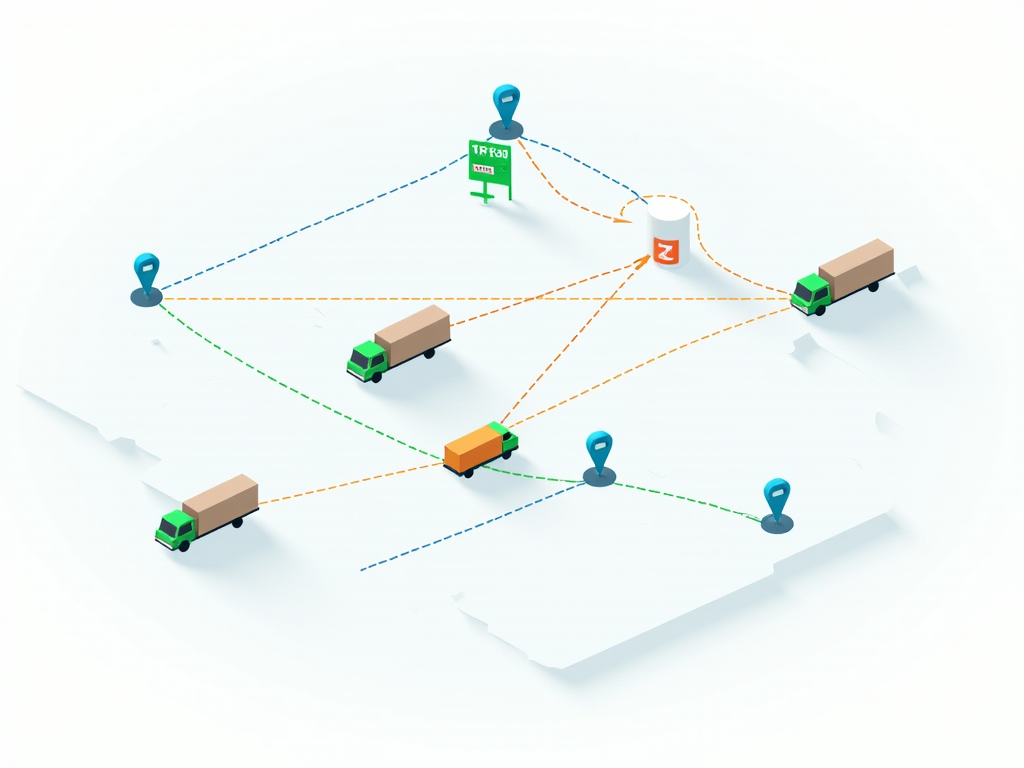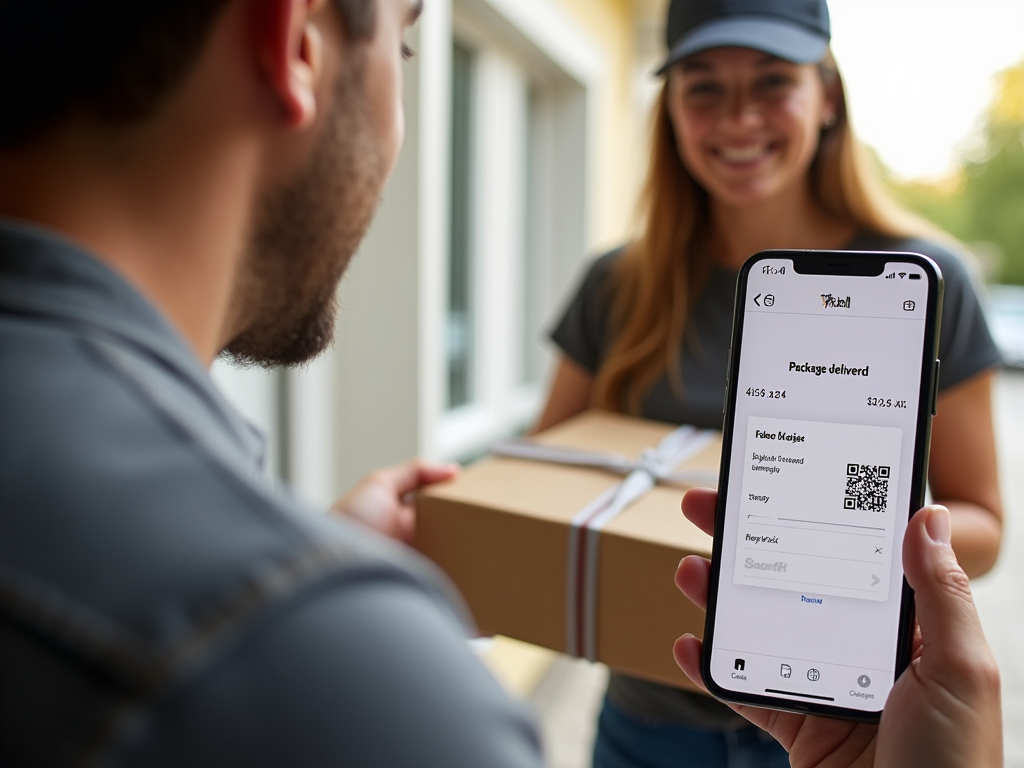Efficient and reliable delivery management is important for the success of any online business, as it guarantees timely shipments, improves customer satisfaction, and supports business growth. In this article, we will explore 11 leading ecommerce delivery management platforms that can help streamline your logistics operations and improve your overall service efficiency. These platforms present significant opportunities for businesses to optimize delivery routes, track shipments in real-time, and provide seamless post-purchase experiences, which can boost operational effectiveness and delight customers, creating an edge in the competitive ecommerce market.

FAQ
What is a delivery management platform?
What is an ecommerce delivery service?
What is the top delivery management software in the market?

Create your online store in minutes!
Looking to sell online? Develop and launch your store with 10Web AI Ecommerce Website Builder.
What is an ecommerce delivery management platform?
An ecommerce delivery management platform is a tool that helps online stores handle shipping and delivery tasks. These platforms make it easier to send orders to customers on time and keep track of packages.
With this software, you can manage different parts of the delivery process. You can plan routes, set delivery times, and choose the best shipping options for each order. This helps make sure packages get to customers quickly and efficiently.
These platforms often include features like:
- Real-time tracking
- Automated updates for customers
- Route optimization
- Carrier management
- Order processing
One big benefit is that you can see where packages are at any time. This lets you keep customers informed about their deliveries. It also helps you spot and fix any problems that come up during shipping.
Many platforms work with multiple carriers. This gives you more choices for shipping rates and delivery options. You can pick the best carrier for each order based on things like cost, speed, and location. Using an ecommerce delivery management platform can help you streamline your shipping process. This can lead to happier customers and fewer headaches for you as a business owner.
Benefits of using an ecommerce delivery management platform
Ecommerce delivery management platforms can transform how online businesses handle shipping and fulfillment. These tools offer key advantages that can improve your operations and keep customers happy.
Improved efficiency
An ecommerce delivery management platform helps you streamline your shipping process from start to finish. You can automate order processing, cutting down on manual data entry and errors. The software connects with your inventory system, so you always know what’s in stock.
Route planning tools map out the most efficient delivery paths. This saves time and fuel costs for your drivers. You can also group nearby orders, making deliveries faster. Additionally. real-time tracking lets you spot issues quickly. If a package is delayed, you can take action right away. This stops small problems from becoming big headaches.
Improved customer satisfaction
Keeping customers happy is key for any ecommerce business. A delivery management platform gives you tools to improve the customer experience.
You can offer more precise delivery estimates. Customers get updates on their package status through email or text. This cuts down on “Where’s my order?” calls to your support team.
On the other hand, the platform makes it easy to offer flexible delivery options. Customers can choose times that work for them. Some systems even let customers change their delivery after placing an order. If there’s a problem, you can fix it fast. Quick responses to delivery issues can turn a negative experience into a positive one.
Scalability and flexibility
A delivery management platform with scalability and flexibility can support this growth by adapting to changing order volumes, new locations, and expanded product lines. These platforms allow businesses to adjust their operations without needing a complete overhaul of the logistics system.
Scalable platforms accommodate spikes in demand, such as during holiday seasons, by adding resources and expanding capacity seamlessly. Flexible options, on the other hand, allow customization of delivery workflows, integration with various carriers, and the ability to adjust delivery settings based on specific customer or product needs. This adaptability guarantees that businesses can continue to meet delivery promises without interruptions, supporting long-term growth and customer satisfaction.

Create your online store in minutes!
Looking to sell online? Develop and launch your store with 10Web AI Ecommerce Website Builder.
Key features of the ecommerce delivery management platform
Ecommerce delivery management platforms offer several important features to help businesses streamline their shipping processes. These tools can improve efficiency, keep customers informed, and improve the overall delivery experience.

Create your online store in minutes!
Looking to sell online? Develop and launch your store with 10Web AI Ecommerce Website Builder.
Real-time tracking
Real-time tracking lets you see where packages are at any moment. This feature uses GPS to show the exact location of delivery vehicles on a map. You can check estimated arrival times and spot any delays quickly.
Real-time tracking helps you plan better. If a driver is running late, you can let customers know right away. This keeps everyone in the loop and reduces customer service calls.
Many platforms let customers track their own orders, too. They can see when their package will arrive without contacting your team. This saves time for both you and your customers.

Automated notifications
Automated notifications keep customers updated without extra work from your team. These messages go out at key points in the delivery process.
You can set up notifications for when:
- An order ships
- A package is out for delivery
- Delivery is complete
Customers like getting these updates. They don’t have to wonder about their order status. The notifications can include tracking links, estimated delivery times, and other helpful info. You can often customize these messages. This lets you match your brand voice and add personal touches.

Create your online store in minutes!
Looking to sell online? Develop and launch your store with 10Web AI Ecommerce Website Builder.
Customer communication
Good communication with customers is key for smooth deliveries. Many platforms offer tools to make this easier.
You can send messages to customers through the platform. This might include:
- Delivery time changes
- Special instructions requests
- Follow-up surveys
Some systems let drivers contact customers directly. They can send a quick text if they’re having trouble finding an address. Many platforms also have customer portals. These let buyers check their order status, update delivery preferences, or reschedule deliveries on their own.
Contactless signature
Contactless signature options have become more popular. They let you complete deliveries without physical contact.
Instead of signing on a device, customers might:
- Give verbal consent
- Approve via text message
- Use a QR code on their phone
These methods still prove the package was delivered. They’re often faster than traditional signatures too. Some platforms let you take photos as proof of delivery. This can work well for packages left at a door or in a safe spot.
Contactless options help keep both drivers and customers safe. They can also speed up the delivery process.

Route optimization
Route optimization is an important feature of many delivery management platforms, focusing on creating the most efficient paths for drivers to follow. By using algorithms to find optimal delivery routes, businesses can reduce fuel costs, save time, and decrease wear and tear on vehicles. Route optimization software considers factors like traffic patterns, delivery windows, and driver schedules to plan routes that maximize efficiency.
Some key benefits of route optimization include:
- Reduced fuel costs
- Time savings
- Lower vehicle maintenance costs
- Improved customer satisfaction
- Decreased environmental impact
Not only does route optimization lower operational costs, but it also leads to faster deliveries. When orders reach customers promptly, customer satisfaction improves. Route optimization helps prevent delays, minimize missed deliveries, and improve overall logistics efficiency. It’s a crucial tool for ecommerce businesses looking to stay competitive while managing costs.
11 ecommerce delivery management platforms
Here’s a look at 11 ecommerce delivery management platforms designed to make logistics smoother and deliveries faster. From real-time tracking to route optimization, each of these platforms brings specific features that help streamline order fulfillment and improve customer experience.

Create your online store in minutes!
Looking to sell online? Develop and launch your store with 10Web AI Ecommerce Website Builder.
1. ShipStation
ShipStation is a web-based shipping software that helps you manage and ship orders. It connects to your online stores and marketplaces, making it easy to handle all your shipping tasks in one place. You can use ShipStation to track orders and shipments across multiple sales channels. The platform lets you create shipping labels, manage inventory levels, and view analytics for your products and shipping.
ShipStation works with many carriers and integrates with popular ecommerce platforms. This makes it flexible for different business needs. You can set up automated shipping rules to save time and reduce errors.
One big plus is ShipStation’s ability to offer in-cart shipping rates to customers. This can help improve your conversion rates. The software also allows you to create picking instructions and split or merge orders as needed.
On the downside, some users find ShipStation has a steep learning curve. It might take time to set up and master all its features. The pricing can also be high for smaller businesses with low shipping volumes.
We picked ShipStation for its wide range of tools that can streamline your shipping process. It’s best for medium to large businesses that ship a lot of orders across multiple sales channels.
| Pros | Cons |
| Connects multiple sales channels | Steep learning curve |
| Offers in-cart shipping rates | Can be pricey for small businesses |
| Automated shipping rules | Might have more features than needed for some |
2. Easyship
Easyship is an all-in-one shipping software for ecommerce businesses. It helps you manage orders, print labels, and find the best shipping rates. You can connect your online store to Easyship and start shipping quickly.
With Easyship, you get access to discounted rates from many shipping carriers. This can save you money on shipping costs. The platform also shows real-time rates at checkout, which can increase your sales.
Easyship makes it easy to handle all your shipments in one place. You can sync orders from different sales channels automatically. The dashboard is simple to use, so you can create shipments fast.
Easyship offers a free plan for low-volume shippers. Paid plans start at $29 per month for more features. We picked Easyship because it’s a good fit for online ecommerce stores that want to simplify shipping.
This platform works best for small to medium-sized ecommerce businesses looking to save time and money on shipping. If you’re just starting or shipping lots of orders, Easyship could be a good choice for you.
| Pros | Cons |
| Discounted shipping rates | Can be pricey for small businesses |
| Easy-to-use dashboard | Some features have a learning curve |
| Integrates with many ecommerce platforms | Customer support can be slow at times |
3. ShipBob
ShipBob is a popular ecommerce fulfillment solution that helps online businesses manage their shipping and logistics. The company offers a network of fulfillment centers across the US, Canada, UK, EU, and Australia. This allows brands to store inventory closer to their customers for faster delivery times.
You’ll like ShipBob’s user-friendly platform, whichmakes it easy to manage orders and inventory. The company also provides real-time tracking and analytics to help you make informed decisions about your shipping strategy. ShipBob integrates with many major ecommerce platforms, simplifying the order fulfillment process.
On the downside, some users report occasional issues with customer service responsiveness. Pricing can also be higher compared to some competitors, especially for businesses with lower shipping volumes. ShipBob’s pricing varies based on your specific needs and order volume. They offer custom quotes rather than set pricing tiers.
We chose ShipBob for its ability to provide fast, reliable shipping to customers across multiple countries. This makes it a good fit for growing ecommerce brands looking to expand their reach.
ShipBob works best for small to medium-sized ecommerce businesses that want to outsource their fulfillment and focus on growth. It’s particularly suited for companies selling on multiple channels or planning to expand internationally.
| Pros | Cons |
| Global fulfillment network | Higher pricing for some businesses |
| Easy-to-use platform | Occasional customer service issues |
| Integrates with many ecommerce platforms | May not be cost-effective for very low-volume sellers |
4. Stamps.com
Stamps.com is a popular ecommerce shipping solution that helps businesses manage their shipping needs. It allows you to buy and print postage directly from your computer, saving time and trips to the post office.
With Stamps.com, you can import orders from various ecommerce platforms and create shipping labels quickly. The software offers discounted rates for USPS and UPS services, which can help reduce your shipping costs.
You’ll like that Stamps.com integrates with many online marketplaces and shopping carts. This makes it easy to sync your orders and streamline your shipping process. The platform also provides tracking information to keep you and your customers informed about package status.
One downside is that Stamps.com requires a monthly subscription fee. This may not be cost-effective for very small businesses or those with low shipping volumes. Some users also find the software interface a bit outdated and less user-friendly than newer alternatives.
We chose Stamps.com for its ability to simplify shipping for online sellers. It’s best for small to medium-sized ecommerce businesses looking to save time and money on their shipping processes.
| Pros | Cons |
| Discounted shipping rates | Monthly subscription required |
| Integration with many platforms | Interface can be outdated |
| Convenient label printing | May not suit very small businesses |
5. Parcelhub
Parcelhub is a delivery management platform that helps ecommerce businesses streamline their shipping processes. It offers multi-carrier solutions to optimize your delivery operations and improve customer satisfaction.
You can save money with Parcelhub through discounted shipping rates and reduced returns. The platform automates shipping tasks, freeing up time for your team to focus on other important aspects of your business.
Parcelhub gives you access to a range of delivery options to meet your customers’ needs. You can keep buyers informed with proactive tracking updates, which can lead to fewer customer service inquiries.
One drawback is that Parcelhub may have a steeper learning curve for smaller businesses new to multi-carrier shipping. Some users might find the interface less intuitive compared to simpler shipping solutions.
Pricing for Parcelhub varies based on your shipping volume and needs. You’ll need to contact them directly for a custom quote tailored to your business.
We chose Parcelhub for its ability to handle high-volume shipping efficiently. It’s best suited for medium to large ecommerce businesses looking to streamline their delivery processes across multiple carriers.
| Pros | Cons |
| Multi-carrier shipping options | Potential learning curve for new users |
| Discounted shipping rates | Pricing not readily available |
| Automated shipping processes | May be complex for small businesses |
6. Metapack
Metapack is a delivery management platform for ecommerce businesses. It offers software to simplify shipping across multiple carriers. With Metapack, you can access over 4,000 shipping services through one integration.
The platform automates carrier selection and label printing. This helps you handle high order volumes, even during busy shopping periods. Metapack connects you to a network of over 350 carriers worldwide.
You’ll like Metapack’s ability to offer tailored delivery options to customers. It uses factors like warehouse hours, transit times, and customer location to provide choices. This can increase conversions and cut shipping costs.
Metapack’s wide carrier network is another plus. It gives you flexibility in shipping options. The software also generates shipping labels and customs documents quickly. On the downside, some users report that Metapack’s platform can be complex to use at first. There may be a learning curve as you set it up.
Pricing for Metapack isn’t publicly listed. You’ll need to contact them for a custom quote based on your business needs. Metapack stands out for its large carrier network and automation features. It’s a good fit for growing ecommerce businesses that ship high volumes internationally.
| Pros | Cons |
| Large carrier network | Can be complex to set up |
| Automated shipping processes | Pricing not transparent |
| Tailored delivery options | May have a learning curve |
7. Shippo
Shippo is a shipping software that simplifies the shipping process for ecommerce businesses. It lets you manage all your online sales channels in one place, making it easier to handle your shipping needs.
With Shippo, you can automate your shipping tasks and get discounts from major carriers. This can save you time and money as your business grows.
One of the best things about Shippo is how easy it is to use. You can quickly print shipping labels and track packages right from their platform. This makes it simple to keep your customers updated on their orders.
Shippo works well with many ecommerce platforms. You can connect it to your online store and start using it right away. This saves you the trouble of switching between different systems. While Shippo offers many benefits, it’s not perfect. Some users have reported issues with customer support. You might face delays when you need help with a problem.
We chose Shippo because it offers a good mix of features at a reasonable price. It’s a solid choice for small to medium-sized ecommerce businesses looking to streamline their shipping process.
| Pros | Cons |
| Easy to use | Customer support issues |
| Integrates with many platforms | Limited features on free plan |
| Offers carrier discounts | Can be pricey for high-volume shippers |
8. Narvar
Narvar is a post-purchase customer experience platform for ecommerce brands. It helps companies manage order tracking, delivery notifications, returns, and exchanges. Narvar aims to improve customer satisfaction and loyalty after a purchase is made.
You might like Narvar for its ability to provide branded tracking pages and personalized notifications. These features can help keep customers informed about their orders and reduce support inquiries. The platform also offers tools to streamline returns and exchanges, which can save time for both customers and businesses.
On the downside, some users report that Narvar’s interface can be tricky to navigate at first. You may need some time to learn how to use all its features effectively. The platform’s pricing is not publicly available, which can make it hard to compare costs with other options.
Narvar stands out for its focus on the post-purchase experience. This emphasis can help you build stronger relationships with customers after they buy from you. The platform is best suited for medium to large ecommerce businesses that want to improve customer retention and reduce support costs.
| Pros | Cons |
| Branded tracking pages | Learning curve for new users |
| Personalized notifications | Pricing not publicly available |
| Streamlined returns process | May be complex for small businesses |
9. Bringg
Bringg offers a delivery management platform for ecommerce businesses. This software helps you plan, optimize, and grow your delivery operations. You can use Bringg to reduce costs, simplify operations, and increase customer loyalty.
The platform lets you manage all aspects of delivery from one central hub. You can handle carrier shipments, track performance, and meet service targets. Bringg also gives you tools to offer delivery windows to customers through your online store.
With Bringg, you get access to a large delivery network. The platform supports different delivery and return models to fit your needs. You can use it to turn delivery into a growth driver for your business.
Bringg serves over 800 customers globally. The platform aims to help you manage complex deliveries more easily. You can use it to automate tasks, track shipments, and improve your delivery options. It is best for medium to large ecommerce businesses looking to streamline their delivery operations. The platform can help if you want to scale your delivery capabilities or improve efficiency.
| Pros | Cons |
| Unified platform for delivery management | May be complex for very small businesses |
| Access to a large delivery network | Pricing not readily available |
| Supports multiple delivery models | The learning curve for new users |
10. Sendcloud
Sendcloud is a shipping software designed for ecommerce businesses. It simplifies parcel delivery by connecting online stores to carriers. The platform offers features like label printing, multi-carrier delivery options, and parcel tracking.
You can use Sendcloud to offer customers a range of delivery choices at checkout. This helps increase sales and customer satisfaction. The software also lets you brand the tracking experience, keeping customers excited while they wait for their packages.
Sendcloud’s Pack & Go feature helps you pick and pack orders faster. This can speed up your fulfillment process and save time. The platform also provides shipping intelligence, giving you insights into carrier performance.
One big plus is Sendcloud’s integration with popular ecommerce platforms like Shopify and WooCommerce. This makes it easy to add to your existing setup. On the downside, some users find the interface a bit complex at first. It may take time to learn all the features.
We picked Sendcloud for its wide range of features and carrier options. It’s best for growing ecommerce businesses that want to streamline their shipping process.
| Pros | Cons |
| Multiple carrier options | Learning curve for new users |
| Integrates with ecommerce platforms | Can be pricey for very small businesses |
| Offers shipping discounts | Some features only available in higher tiers |
11. AfterShip
AfterShip is a delivery management platform that helps ecommerce businesses handle shipping and tracking. You can use it to manage orders, track packages, and communicate with customers about their shipments.
AfterShip works with many carriers worldwide. This makes it easier for you to ship to different countries. The platform also offers features like label generation and real-time rate calculation.
One thing you might like about AfterShip is its automated shipping workflow. This can save you time on repetitive tasks. The platform also provides carbon emissions reports, which can help improve your brand’s image.
AfterShip’s AI-powered email parser is another useful tool. It can extract data from emails accurately, which can improve your customer service. On the downside, some users find AfterShip’s interface a bit complex at first. The pricing can also be high for small businesses with low shipping volumes.
We picked AfterShip for its wide range of features and global carrier support. It’s best for medium to large ecommerce businesses that ship internationally and want to improve their post-purchase experience.
| Pros | Cons |
| Wide carrier support | Complex interface for beginners |
| Automated workflows | Can be pricey for small businesses |
| Carbon emissions reporting | Some features may be overkill for simple operations |

Create your online store in minutes!
Looking to sell online? Develop and launch your store with 10Web AI Ecommerce Website Builder.
Conclusion
Efficient delivery management is important for ecommerce success. The 11 platforms we reviewed—like ShipStation, Easyship, and Narvar—offer tools to improve logistics with features such as real-time tracking, automated notifications, and route optimization. By using these platforms, businesses can streamline shipping, increase customer satisfaction, cut costs, and gain a competitive edge. Each platform has unique strengths to fit different business needs, making it easier to manage orders and exceed customer expectations.













